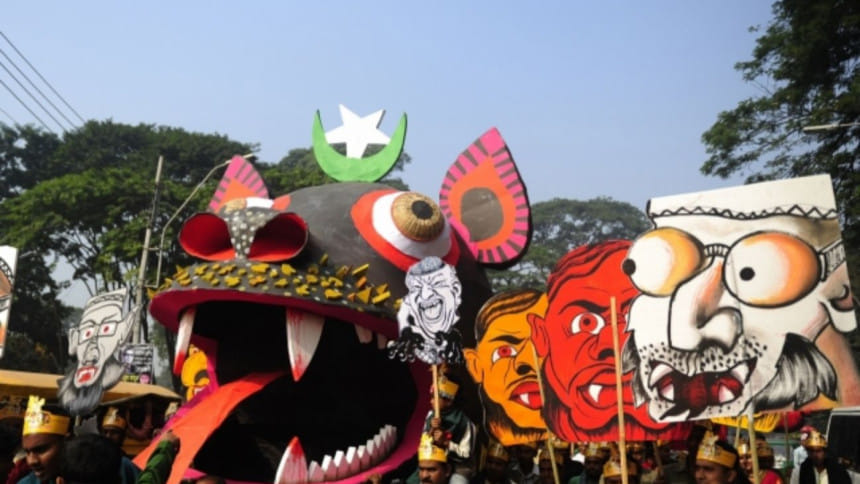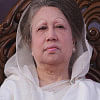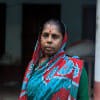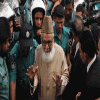ENOUGH WITH THE DENIAL

The BNP chief, in her first public address in more than a year on Monday said, "There is still a controversy about the exact number of people martyred in the Liberation War." Khaleda's comment came hot on the heels of Pakistan's denial in November of committing any war crimes or atrocities during the nine-month bloody war. She also renewed her demand for a "transparent" war crimes trial of "international standards."
On December 3, 2007, Muktijoddha Gono Parishad (MGP), an organisation of freedom fighters, arranged a gathering of war veterans attended by hundreds of freedom fighters. The attendees of the congregation in a united voice urged the then government to form a special tribunal to try the war criminals. Presided over by MGP President Ishtiaq Aziz Ulfat, the meeting was addressed, among others, by Syed Muhammad Ibrahim Bir Pratik, who fiercely declared that "there can be no compromise with war criminals." The meeting in which the BNP chief made her recent despicable assertion, was ironically presided over by the same Ishtiaq Aziz Ulfat who inducted himself as a 'Bangladeshi nationalist' of BNP on December 12, 2012, where his leader welcomed them through a promise to revive the "true history" which, in her words, has been "destroyed" by the current government.
After World War-II, allied forces had claimed that the Nazi forces killed six million Jews. Though the lawyers for the Nazi war criminals at the Nuremberg Tribunal and later Nazi sympathisers questioned the figure, the official figure remains six million, as was provided by the allied governments.
The right to free speech is one of the most important democratic freedoms. It encourages diversity of opinion in the public sphere to serve public interest. But like most freedoms, it is not absolute nor should it be. Freedom of speech must be balanced with freedom from the destabilising effects of public hatred on one hand, and public emotions on the other. In the words of Canadian Justice M A Binder, "Freedom of expression will yield to establish historical fact and safeguard its integrity".
Last year, the International Crimes Tribunal (ICT) of Bangladesh found a Bangladesh-based British-born journalist David Bergman guilty of contempt for challenging the official death toll from the 1971 War of Liberation. Delivering the verdict, presiding judge Obaidul Hassan told the courtroom that, "freedom of expression can be exercised in good faith and public interest". "David Bergman neither had good faith nor had he done it to serve public interest", the judge added. The tribunal reiterated that it was historically established that three million people were killed in the Liberation War. The tribunal also referred to its previous judgements where it mentioned the number (three million). "Anyone can research this but they have to be aware about not making any comment that may hurt the tribunal's dignity", added the honourable judge.
Following the guilty verdict based on Bergman's blog vis-à-vis the number of martyrs, there has been a widespread demand in the country, especially through social media, for the enactment of law in line with "laws against Holocaust denial", as enacted in 14 European countries. To prevent distortion of history, 14 European nations enacted the Holocaust Denial Act, under which any denial of the genocide figure of WW-II is a punishable offence. Even countries which were among the perpetrators of the Holocaust, including Austria and Germany, have banned Holocaust denial. Likewise, following Mrs. Zia's recent statement, freedom fighters, war crimes researchers, family members of those killed in the war, war crimes prosecutors and different pro-liberation organisations urged the government to enact a law with provisions of punishment for the denial of historically established facts and settled issues. Khaleda Zia, through her comment, reiterated what the Pakistan and anti-liberation Jamaat-e-Islami have been claiming about the 1971 martyrs, they said while demanding an apology from her.
Many countries also have broader laws that criminalise genocide denial. In Belgium, Holocaust denial was made illegal in 1995. The law stipulates that "whoever, denies, grossly minimises, attempts to justify, or approves the genocide committed by the German National Socialist Regime during the Second World War shall be punished by a prison sentence". In France, the Gayssot Act, voted for on July 13, 1990, makes it illegal to question the existence of crimes that fall in the category of crimes against humanity, on the basis of which Nazi leaders were convicted at the Nuremberg trials. In Germany, "whoever publicly or in a meeting approves of, denies or belittles an act committed under the rule of National Socialism shall be punished". The Parliament of Hungary declared the denial or trivialisation of the Holocaust a crime punishable by up to three years' imprisonment.
Those who claim that not as many people died during the Liberation War seem to be trying to trivialise and minimise our sacrifices, and in some cases, tacitly justify the crimes committed against our people. This, in turn, is a part of the shrewd attempt to create a dent on the "dignity" of the ICT. It is high time that the government of the day, which has undertaken the monumental task of bringing the perpetrators of war crimes of 1971 to justice, takes this "emotionally attached" issue into serious and immediate cognizance and enact a law in line with the laws that have been enacted in European countries to put the matter to rest, once and for all. The law might include provisions to suspend or retract gallantry awards, if there are attempts to distort history by any decorated freedom fighter. It must be ensured that the enacted law is equally applied to every violator, irrespective of their position in society or the political arena. Such a law would be a great shield against the distortion of history of our Liberation War.
The writer is the Convenor of the Canadian Committee for Human Rights and Democracy in Bangladesh.

 For all latest news, follow The Daily Star's Google News channel.
For all latest news, follow The Daily Star's Google News channel. 








Comments